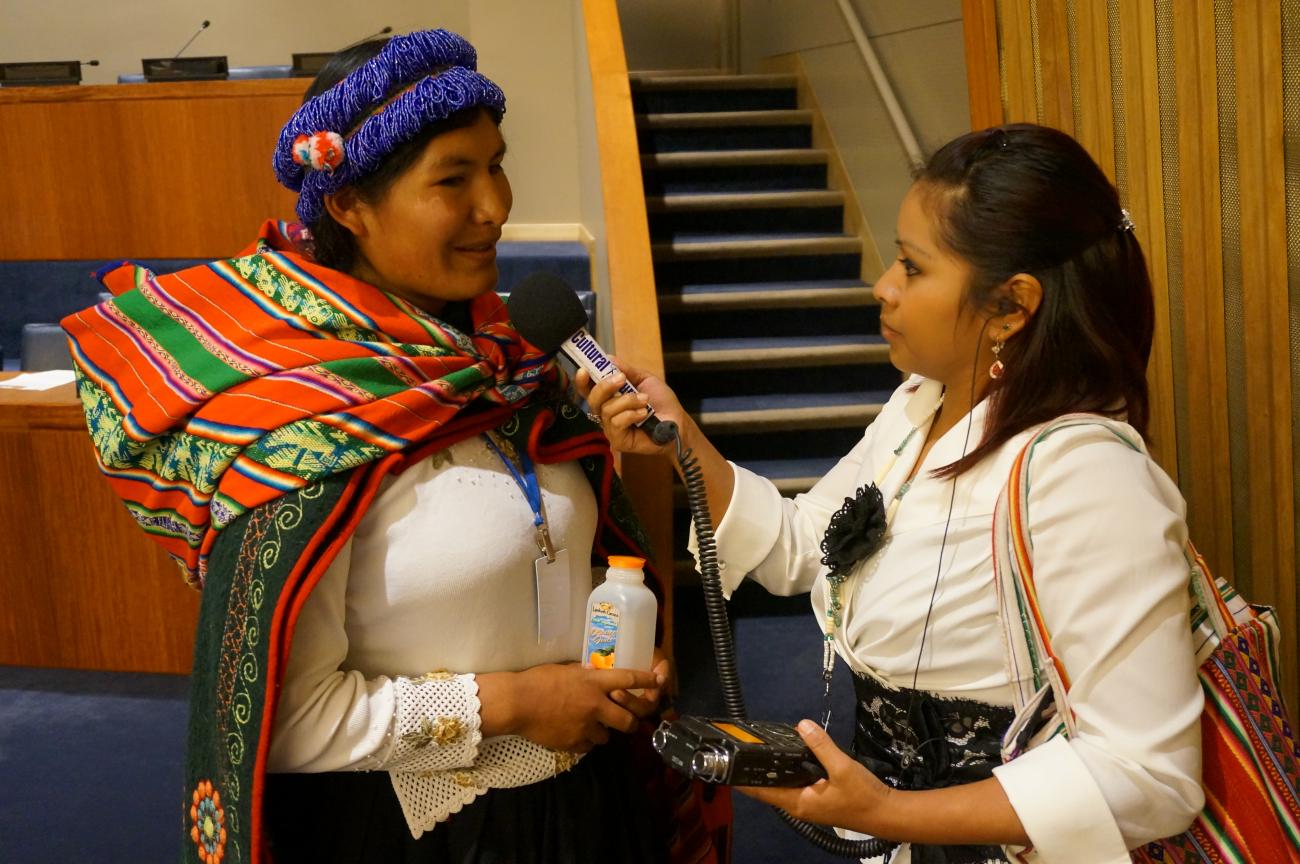
For Immediate Release
Contact: Mark Camp, Deputy Executive Director, Cultural Survival, mcamp@cs.org, 617-441-5400 x 11
Angelica Rao, Executive Coordinator, Cultural Survival, angelica@cs.org, 647-624-3084
Without A Secured Right to Freedom of Expression, There Is No Democracy In Central America
On October 23, 2015, the Inter-American Commission on Human Rights will hold a Thematic Hearing on Examining Freedom of Expression in Honduras, El Salvador, and Guatemala during its 156th Session in Washington DC.
Organized by Asociación Mundial de Radios Comunitarias (AMARC-Subregión Centroamérica), Asociación de Medios Comunitarios de Honduras (AMCH), Asociación de Radios Comunitarias de Guatemala (ARCG), Asociación Sobrevivencia Cultural, Central American Institute for the Study of Social Democracy (DEMOS), Comité por la Libre Expresión (C Libre), Cultural Survival, Fundación de la Comunicación para el Desarrollo (Comunicándonos), Junta Ciudadana por el Derecho Humano a la Comunicación and Mujb'ab'l yol: Encuentro de Expresiones, the session seeks to shine a spotlight on the daily rights violations that Indigenous journalists and communities face when exercising the universal right to freedom of expression and communication.
These basic rights make up the foundation of a well functioning democracy, yet communities in Central America share a common experience, history and reality that citizens’ freedom of expression and the right to communication are not evenly respected and guaranteed. Indigenous journalists and community radio operators, despite physical threats, state persecution, and even risk of death, continue to exercise their rights in order to serve their communities.
El Salvador’s democracy is threatened by media concentration. Five commercial groups have historically held ownership of the radio frequency spectrum. Ex-president Elias Antonio Saca owned six radio frequencies when he began as president, and fourteen by the end of his presidency. The law does not distinguish between public, private or community radio; all frequencies are auctioned to the highest bidder and no state entity exists to regulate radio broadcasting.
In Guatemala, the 1996 Peace Accords that ended 36 years of civil war guaranteed the democratization of the media. However, the current telecommunications law makes no provision for non-profit community radio. Frequencies are either reserved for government use or auctioned to the highest bidder. Indigenous communities must compete head-to-head with commercial radio stations. The Community Radio Movement of Guatemala brought a case to the Constitutional Court arguing that this discriminates against Indigenous Peoples. On March 14, 2012, the Court exhorted the Congress to legislate in favor of Indigenous community radio stations, allowing them access to radio frequencies. Bill 4087, which seeks to legalize and regulate community radio has been introduced to the Guatemalan Congress, but the Congress has not complied. The continued concentration of Guatemala’s media has prevented the exercise of real democracy by barring varied sources of information and opinions to be broadcast and has contributed to a loss of Indigenous cultures and values. The concentration of ownership of media is a de facto violation of article 130 of the Guatemalan Constitution, which prohibits media monopolies. In addition, in recent years, community radio stations have been the targets of repression through police raids, criminal investigations, and unlawful imprisonment.
In Honduras, restrictive laws, the criminalization of the right to free expression, and murder of community journalists are all common occurrences. In less than four years, there have been seven murders of journalists and broadcasters that work for community media outlets. Between 2014 and 2015, there were 55 acts of aggression against those who work for community and alternative radio stations. Journalists regularly face threats to their lives by local governments.
“If Guatemala, Honduras, and El Salvador are to make real progress toward meaningful democracy, it is crucial to address threats to freedom of expression,” said Mark Camp, Deputy Director of Cultural Survival.
Thematic Hearing Panelists Include:
Oscar Antonio Pérez, Asociación Mundial de Radios Comunitarias (AMARC-Subregión Centroamérica)
Anselmo Xunic Cabrera, Cultural Survival and Asociación Sobrevivencia Cultural
Anabella Rivera, Central American Institute for the Study of Social Democracy (DEMOS)
Alma Gloria Temaj Morales, Mujb'ab'l yol: Encuentro de Expresiones
Carlos Ramón Enamorado Pérez, Asociación de Medios Comunitarios de Honduras (AMCH)
Join us in person if you live in the D.C. area:
Thematic Hearing at the Inter-American Commission on Human Rights
October 23 at 5:15-6:00 PM EST
1889 F St. N.W. Washington, DC, U.S.A. 20006.
Salon Padilha Vidal, TL, Building GSB
Join us virtually:
Follow us on Twitter and Facebook.
Be a part of the conversation by using the hashtags #right2media #freedomofexpression
Attend the hearing by watching the live-stream on the Commission's Website.
For more information on the Freedom of Expression in Honduras, El Salvador, and Guatemala, visit www.cs.org.
